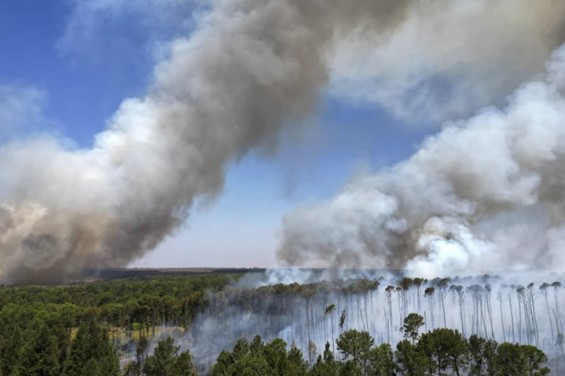
Lula Pushes to Pave Amazon Road Despite Warnings of Increased Deforestation
Brazilian President Luiz Inácio Lula da Silva has committed to paving the BR-319 roadway, a decision that has sparked concerns among environmentalists and some in his own government. During a visit to the drought- and fire-stricken Amazon region, Lula reaffirmed his plan to complete the road, which runs through a critical part of the rainforest and could accelerate deforestation in the world's largest tropical forest.
The BR-319, largely an unpaved dirt road, connects the Amazonian states of Amazonas and Roraima with the rest of Brazil, ending in Manaus, the largest city in the Amazon. As the Madeira River, a major waterway for cargo, has hit record low levels due to severe drought, Lula emphasized the need for alternative routes to avoid isolating Amazonian capitals. "We can't leave two capitals isolated. But we will do it with the utmost responsibility," Lula said, though he did not specify how deforestation would be mitigated.
Hours after his announcement, Lula signed a contract to pave 52 kilometers of the road, and vowed to begin work on the controversial 400-kilometer stretch that cuts through untouched rainforest. The permit for this section was originally issued during the tenure of his predecessor, Jair Bolsonaro, whose pro-development stance weakened environmental protections. A court suspended the permit in July, following a lawsuit by the Climate Observatory, a coalition of environmental and academic groups.
While deforestation has slowed since Lula took office, his decision to move forward with the road has drawn criticism. Experts warn that paving BR-319 without strict environmental governance will lead to massive deforestation, as highlighted by Brazil's own environmental agency. "Without the forest, there is no water, it's interconnected," said Suely Araújo, a policy coordinator with the Climate Observatory, noting that road construction without government oversight would cause "historic deforestation."
Despite Lula's efforts to position himself as a global environmental protector, he has often pushed back against international pressure to preserve the Amazon. He criticized wealthy nations for demanding that Brazil protect the rainforest while they failed to conserve their own lands during the Industrial Revolution.
Brazil is experiencing its worst recorded drought, with 59% of the country affected. Rivers in the Amazon are running dry, leaving many communities without access to potable water or food. Wildfires have blanketed much of the country in smoke, affecting cities as far away as São Paulo and reaching neighboring Argentina and Paraguay.
Environment Minister Marina Silva, a strong advocate for forest protection, has expressed caution about the project. She criticized the Bolsonaro-era permit for the road, calling it a "sham" during a congressional hearing. Brazil, the world's fifth-largest emitter of greenhouse gases, generates nearly half of its emissions from Amazon deforestation, contributing significantly to global climate change.